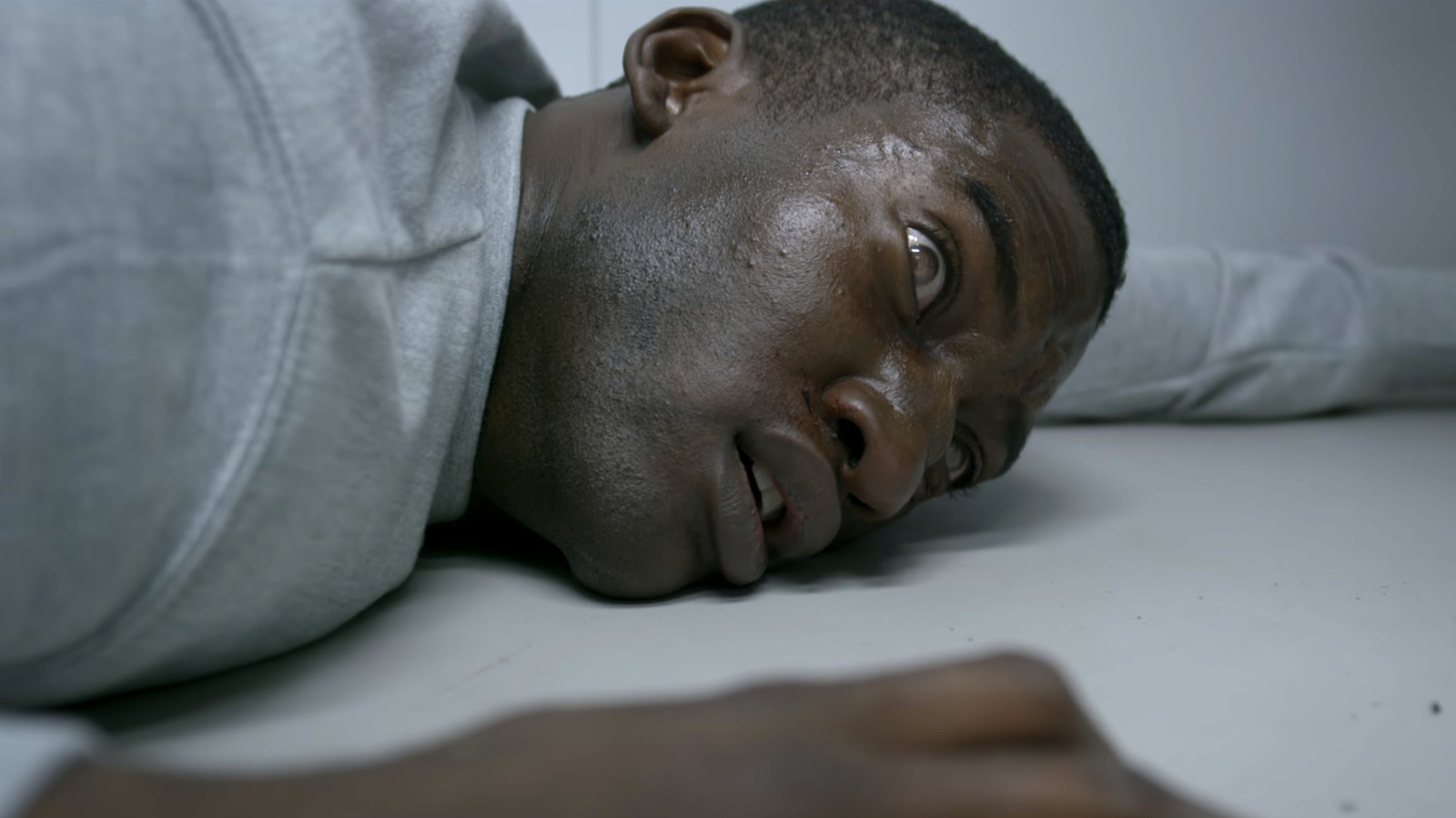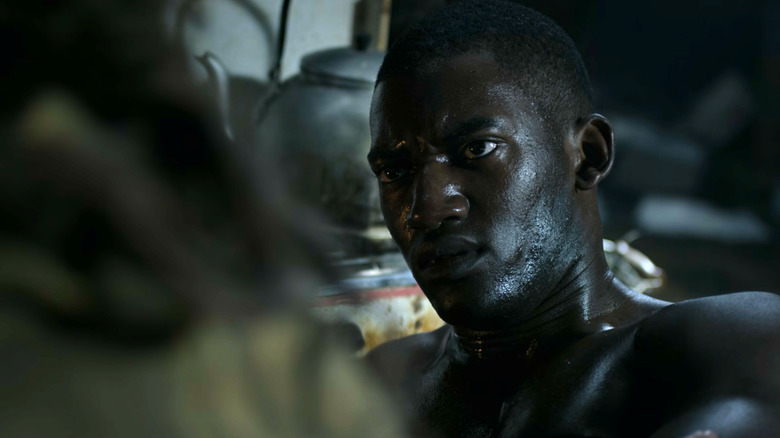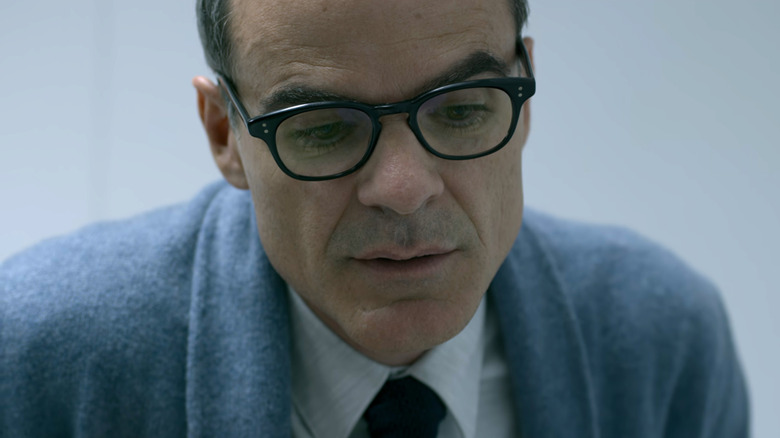after “Black Mirror” first premiered, it was actually the first ever episode showrunner Charlie Brooker wrote. Well, sort of; in its early draft the episode was called “Inbound,” and it wasn’t that similar to what “Men Against Fire” would become. In the 2018 book “Inside Black Mirror,” Brooker explained:
“‘Inbound,’ the first ever ‘Black Mirror’ episode fully written but never made, had been based on a true, harrowing story. [‘Black Mirror’ writer] Konnie [Huq] had made me watch this gut-wrenching 2010 John Pilger documentary called ‘The War You Don’t See,’ about the Iraq war. There was a lengthy sequence following a grieving mother around her house, in which she was subtitled throughout, describing how members of her family had been killed. Usually you’d just glimpse a weeping relative for a two-second shot in a news report. This suddenly became more urgent and human.”
“The War You Don’t See” was so gripping because it refused to sanitize the consequences of the Iraq War, something that most media outlets had been happy enough to do. The invasion of Iraq was easier to support when people thought of it in more abstract terms, but this documentary never backed away from the personal devastation the war wrought. If media coverage of the war had done this from the very beginning, maybe fewer members of the public would’ve supported it in the first place.
The link between the documentary and “Men Against Fire” is clear. Stripe (Malachi Kirby) is an enthusiastic participant in the vaguely-defined war he’s fighting in — right up until his perception filter’s damaged and he could see the actual harm he’s causing. The government’s manipulation of his perception may be more exaggerated, with civilians being portrayed by the filter as bloodthirsty monsters or “roaches,” but the basic idea is the same.



